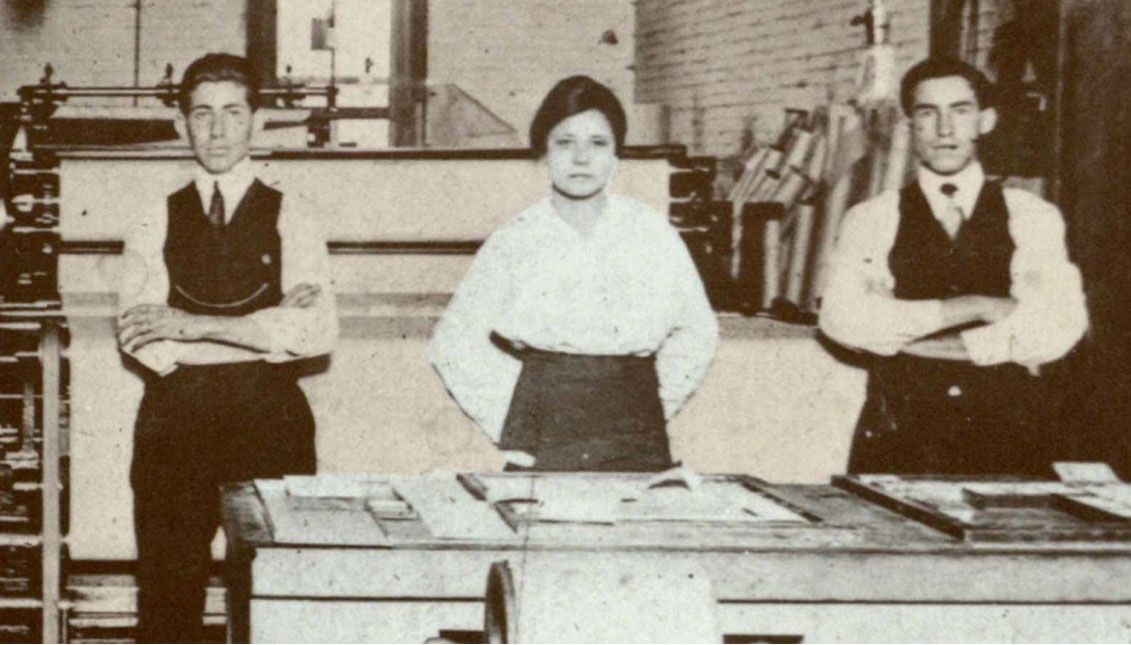
Jovita Idár, the 'Black Bird' of the border
A journalist and activist for the rights of Mexican Americans and women, Idár spoke out like no one before her against racism and injustice
Jovita looked relentlessly at the Rangers on horseback trying to get into the offices of the El Progreso newspaper. She had stood at the door, blocking their way, and was unwilling to give up an inch in spite of their use of violence — a common occurrence for Rangers, who mercilessly beat Mexicans.
It was 1914 and the young editor and publisher of the newspaper had written a harsh editorial criticizing President Woodrow Wilson's order to send military personnel to the Texas-Mexico border to calm the Mexican Revolution. Jovita Idár claimed her right to freedom of expression, which was protected by the First Amendment of the Constitution. If they wanted to close the newspaper, they would have to go over her dead body.
The Rangers retreated that day, but returned the next day and took advantage of the editor's absence to destroy the newspaper. However, neither they nor anyone else could stop the Mexican-American from continuing to defend justice the way she knew how: by writing.
Born on Sept. 7, 1885 in Laredo, Texas, Jovita Idár was the second of eight children from a well-educated and wealthy family. Her father, Nicasio Idár was the editor of the local Spanish-language newspaper La Crónica and a civil-rights advocate.
The difficult situation of the Mexican American community was one of the topics of family debate, and Nicasio and his wife were committed to ensuring that all their children received a first-class education in Methodist schools and encouraged their taste for writing and spirit of advocacy.

When Jovita finished her studies, she started working as a teacher at a school in Los Ojuelos, in the southeast of the state, but the lack of resources of her students, the abandonment they suffered, and their educational inequality made the young woman furious.
It was the beginning of the 20th century and apartheid was not only educational — Spanish was forbidden as a language inside and out of school — and it was common to see businesses and restaurants with signs that read: "No Mexicans, Blacks or dogs allowed."
In the early days, Idár also realized her motto: "Educate a woman and you will educate a family," that she defended until her death, but it needed a platform.
RELATED CONTENT
Not long after, she went to work on her father's newspaper to write chronicles and opinion columns about the Mexican Revolution and all the injustices and racism that were continually happening at the border.
The high point of her awakening as an activist came in September 1911, when Idár and her family organized the First Mexican Congress to unite the community on both sides of the border. At the event, she was elected president of the Liga Femenil Mexicanista, a feminist organization that championed women in the struggle against the educational, political and social inequalities faced by Latinos.
One of the first tasks of the organization led by Idár was to offer education to poor Mexican-American students, which she encouraged to master both English and Spanish.
From then on, the right of women to vote and the search for independence from the patriarchy were the common denominators of most articles she published in La Crónica, which she signed as the 'Ave Negra' ('Black Bird') or 'Astraea,' the goddess of Greek justice.
A year before her iconic rebuff to the Rangers in front of El Progreso's offices, she experienced first-hand the horror of the Nuevo Laredo battle as a volunteer nurse on the frontlines. The introduced her to journalism, and made her so furious and determined to end the oppression that her words of denunciation became knives set to slice the wrongdoers.
When she married Bartolo Juarez, who was a tinsmith, in 1917, they moved to San Antonio, where she founded a free kindergarten, worked in a hospital as an interpreter for Spanish-speaking patients, and edited a Methodist newspaper, among many other altruistic activities.
Idár died relatively young, in 1946, when she was 60 years old. Nevertheless, her legacy was powerful and the best reminder of the function of the free press, pointing out the errors and shames for the common good.











LEAVE A COMMENT:
Join the discussion! Leave a comment.